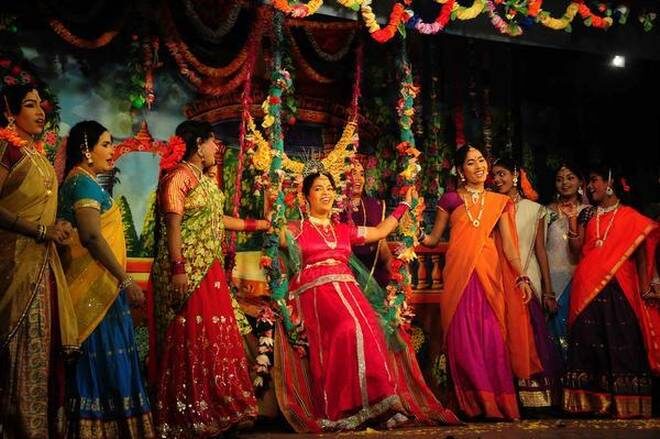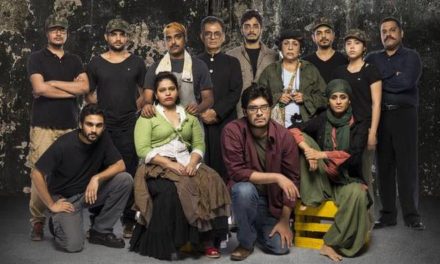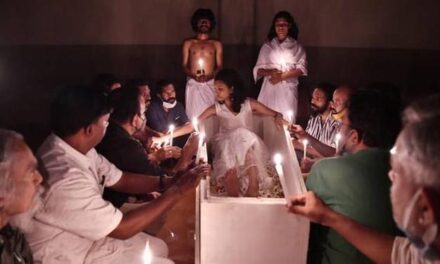With their sole means of livelihood being out of bounds, members of Sri Venkateswara Surabhi Theatre are seeking funds to tide over the crisis.
Members of Hyderabad-based Sri Venkateswara Surabhi Theatre, a group known for its colorful and elaborately staged mythological dramas in Surabhi theatre tradition, find themselves at the crossroads after the Coronavirus outbreak. The primary means of livelihood for at least 50 families residing in Surabhi Colony in Serilingampally, comprising 200 artists, is by staging plays. Public performances were called off early March due to the pandemic and since then these theatre artistes have been out of work and are seeking help.
A social media post by city-based photographer Swarat Ghosh, who had earlier photographed the group during its plays, highlighted their plight. Swarat had shared the bank details and online phone transfer options for Sri Venkateshwara Surabhi Theatre and requested contributions. After the post caught attention, there has been some support from well-wishers and from the film fraternity, including director Harish Shankar.
Jayachandra Varma, secretary of the theatre group, says barring the theatre actors, around 500 people depend on stage plays taking care of costumes, makeup, lights, set design, and production. “Ours is a 135-year-old theatre tradition and most of us don’t know any other means of livelihood. I completed my MBA but I’ve always been part of theatre. I’ve been born into this illustrious family (his grandfather is the Padma Shri winning theatre veteran R Nageswara Rao, referred to as Babji) and grew up on theatre,” he says.
In 2016, Jayachandra received the Ustad Bismillah Khan Yuva Puraskar from Sangeet Natak Akademi. He was also part of the Surabhi team that staged Mayabazar, Bhakta Prahlada, and Sri Krishna Leelalu in France in 2013, as part of “Passages 2013” initiative, supported by Alliance Francaise.
Jayachandra and others in Surabhi Colony never had to think of Plan B. He says artistes made ₹5000 to ₹10,000 per month by staging shows and didn’t complain as long as their basic needs were met.
In good times, Jayachandra and his group would travel to Vizag, Vijayawada, Karimnagar, and other cities to stage plays. “These were not ticketed shows, but the organizers would pay us. If we were lucky, we would stage 10 shows a month,” he recalls.
Each year, February would signal the beginning of a lean phase: “Families don’t come in large numbers during exam time to watch plays,” explains Jayachandra.
Now, with a likely long curb on social gatherings and public performances, Jayachandra is contemplating part-time work for himself and other members: “The thought of moving away from theatre is painful. But we need to survive; we don’t expect theatre to revive for a year. We understand these measures [of social distancing]; we are now in a situation where lives have to be saved,” he says.
This article was originally posted at www.thehindu.com and has been reposted with permission. To read the original article, click here.
This post was written by the author in their personal capacity.The opinions expressed in this article are the author’s own and do not reflect the view of The Theatre Times, their staff or collaborators.
This post was written by Sangeetha Devi Dundoo.
The views expressed here belong to the author and do not necessarily reflect our views and opinions.


















